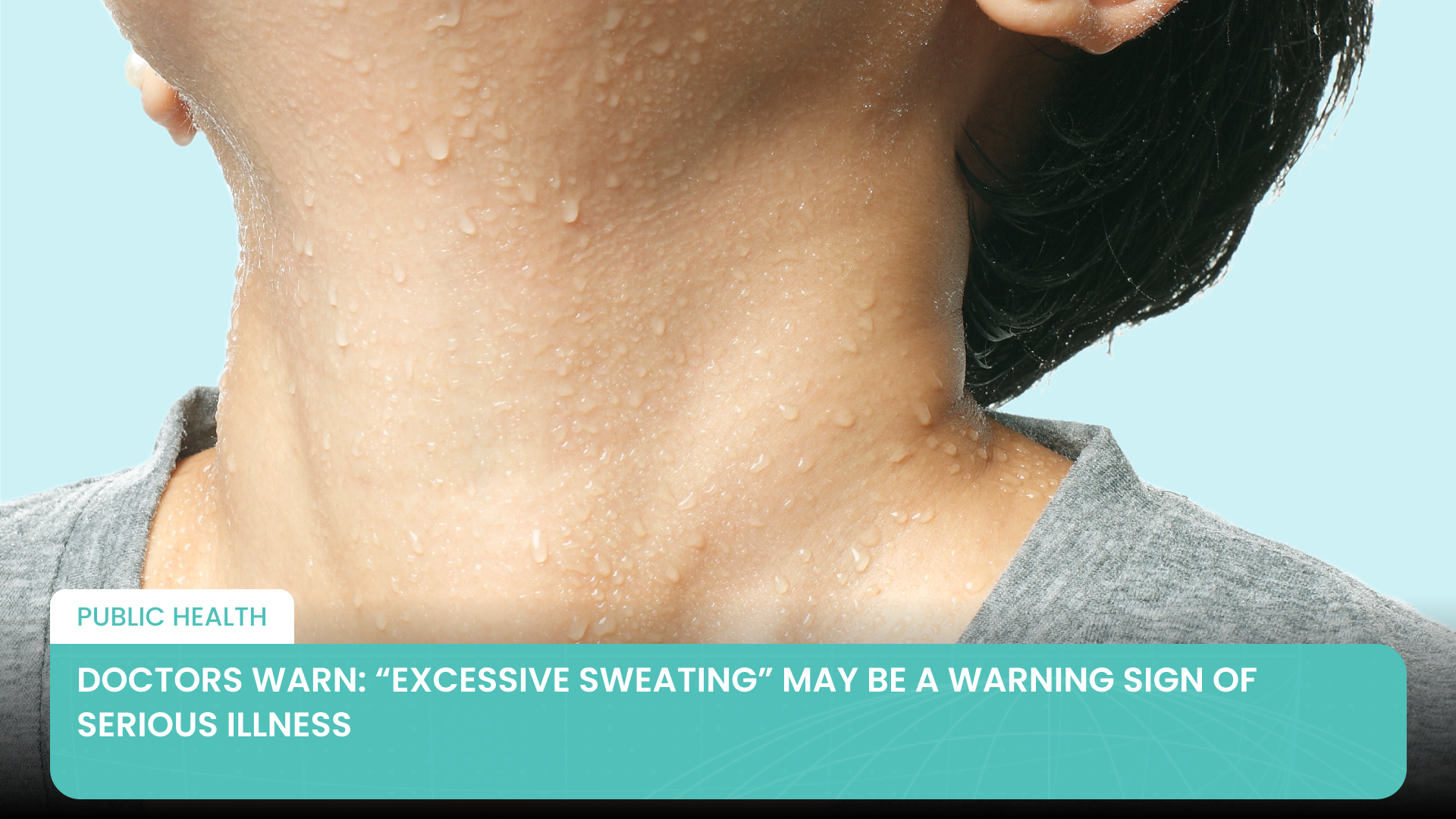
Doctors Warn: “Excessive Sweating” May Be a Warning Sign of Serious Illness
Medical experts caution that abnormal excessive sweating, especially on the hands and feet, should not be ignored as it may indicate underlying health issues.
Medical experts caution that abnormal excessive sweating, especially on the hands and feet, should not be ignored as it may indicate underlying health issues.
Hand–foot hyperhidrosis is still relatively unfamiliar to many people in Thailand. Normally, during hot weather, the body produces sweat to regulate temperature. However, in some individuals, sweating occurs excessively and continuously regardless of body temperature. This condition, known as Hyperhidrosis, often develops without a clear cause.
There are two main types of hyperhidrosis:
-
Primary Focal Hyperhidrosis – Characterized by excessive sweating in specific areas such as the hands, armpits, and feet. This type usually occurs without being linked to any other health condition.
-
Secondary Hyperhidrosis – Excessive sweating that occurs alongside other medical conditions, such as high blood pressure (Hypertension) or overactive thyroid (Hyperthyroidism).
Primary focal hyperhidrosis affects around 1–3% of the population, with equal occurrence in males and females. Symptoms usually begin in childhood or adolescence. People with this condition experience continuous sweating in the affected areas, except during sleep, and symptoms worsen in hot environments or under stress.
The hands and feet are the most commonly affected areas. Many children first notice the problem when sweating on their hands interferes with daily activities, such as difficulty writing, holding paper or objects without soaking them, or using touchscreens on mobile phones or computers. It may also cause embarrassment when participating in activities with friends.
Treatment for excessive sweating can begin in childhood, with several available options:
-
Topical medications
-
Oral medications
-
Botox injections
-
Low-voltage electrical therapy (Iontophoresis)
-
Surgery (Sympathectomy) – Cutting the nerve signals to the sweat glands. This is the only permanent solution, but not everyone is suitable for surgery.
Modern surgical techniques now allow for minimally invasive endoscopic procedures, leaving incisions as small as 2–3 millimeters, which are barely visible. This approach enables faster recovery and a quicker return to normal life.
Source:
Articles in this category are written by our editorial team to keep you informed about the latest healthcare and medical tourism news.

